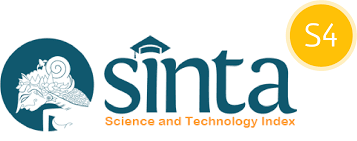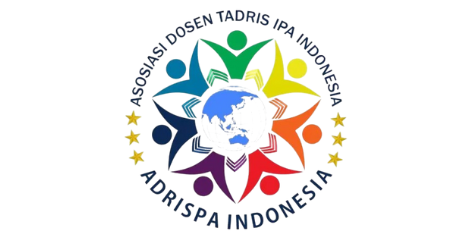Pengembangan Assessmen Untuk Mengukur Kemampuan Literasi Sains Pada Materi Interaksi Makhluk Hidup Dengan Lingkungannya Di SMP Se-Kota Bengkulu
DOI:
https://doi.org/10.35719/vektor.v2i2.33Keywords:
Pengembangan Assessment, Literasi SainsAbstract
Abstrak
Penelitian ini bertujuan untuk mengembangkan assessmen untuk mengukur kemampuan literasi sains pada materi interaksi makhluk hidup dengan lingkungannya. Metode penelitian yang digunakan adalah metode penelitian dan pengembangan yang teridiri dari 8 langkah, yaitu penelitian dan pengumpulan informasi awal, perencanaan, pengembangan format produk awal, uji coba skala kecil, revisi produk, uji coba awal, dan produk akhir. Subjek uji coba dalam penelitian dan pengembangan ini adalah subjek ahli, yaitu ahli assessmen, ahli materi dan ahli bahasa, serta subjek siswa kelas VII SMPN se-Kota Bengkulu sebagai pengguna produk. Data dianalisis secara deskriptif kualitatif dan kuantitatif. Kelayakan assessmen oleh tiga ahli validator yang dikembangkan pada aspek assessmen sebesar 89%, aspek materi sebesar 92%, dan aspek bahasa 92%, secara keseluruhan dinyatakan sangat layak dengan ratarata sebesar 91%. Hal ini menunjukkan bahwa assessmen literasi sains untuk mengkur kemampuan literasi sains dinyatakan sangat layak digunakan untuk mengukur tingkat kemampuan literasi sains peserta didik.
ABSTRACT
This study aims to develop an assessment to measure scientific literacy skills in the interaction of living things with their environment. The research method used is a research and development method consisting of 8 steps, namely research and initial information collection, planning, initial product format development, small-scale trials, product revisions, initial trials, and final products. The trial subjects in this research and development are expert subjects, namely assessment experts, material experts and linguists, as well as the subjects of class VII SMPN students in Bengkulu City as product users. Data were analyzed descriptively qualitatively and quantitatively. The feasibility of the assessment by three validator experts developed in the assessment aspect of 89%, material aspect of 92%, and language aspect of 92%, all of which were declared very feasible with an average of 91%. This shows that the scientific literacy assessment to measure scientific literacy ability is stated to be very suitable to be used to measure the level of students' scientific literacy ability.
References
Bagiarta, I. N., Karyasa, I. W., & Suardana, I. N. (2015). Komparasi Literasi Sains Antara Siswa Yang dibelajarkan Dengan Model Pembelajaran Kooperatif Tipe GI (Group Investigation) Dan Model Pembelajaran Inkuiri Terbimbing (Guide Inquiry) Ditinjau Dari Motivasi Berprestasi Siswa SMP. E-Journal Program Pascasarjana Universitas Pendidikan Ganesha Program Study IPA, 5.
Gloria, R. Y. (2012). Pentingnya Asesmen Alternatif Dalam Meningkatkan Kemampuan Berpikir Dan Membaca Ilmiah Siswa Pada Pembelajaran Biologi. Jurnal Scientiae Educatia, 1(1).
Gormally, C., Brickman, P., & Lutz, M. (2012). Developing a Test of Scientific Literacy Skills (TOSLS): Measuring Undergraduates’ Evaluation of Scientific Information and Argument. CBE—Life Sciences Education, 11.
Kartika, A. T., Eftiwin, L., Lubis, M. F., & Walid, A. (2020). Profil Kemampuan Berpikir Kritis Siswa Kelas VIII SMP Pada Mata Pelajaran IPA. JARTIKA, 3(1).
Muhammad, Fauroni, R, L. (2002). Visi Al-Quran Tentang Etika dan Bisnis. jakarta: Salemba Dinyiyah.
Organisation for Economic Cooperation and Development(OECD). (2016). PISA 2015 Results in Focus. Paris: OECD.
Organisation for Economic Cooperation and Development (OECD). (2018). PISA 2015 draft frameworks. Paris: PISA, OECD Publishing.
Rostikawati, D. A. (2016). Rekonstruksi Bahan Ajar dengan Konteks SocioScientific Issues pada Materi Zat Aditif Makanan untuk Meningkatkan Literasi Sains Siswa. Jurnal Inovasi Pendidikan IPA, 2(2).
Toharudin, U., Hendrawati, S., & Rustaman, A. (2011). Membangun Literasi Sains Peserta Didik. Bandung: Humaniora.
Walid, A., Sajidan, S., Ramli, M., & Kusumah, R. G. T. (2019). Construction of The Assessment Concept to Measure Students’ High Order Thinking Skills. Journal for the Education of Gifted Young Scientists, 7(2).
Winata, A., Cacik, S., & W., I. S. R. (2018). Kemampuan Awal Literasi Sains Peserta Didik Kelas V SDN Sidorejo I Tuban pada Materi Daur Air. JTIEE, 2(1).
Zahro’, U. R. (2020). Pengembangan Instrumen Tes Untuk Mengukur Kemampuan Literasi Sains Siswa SMP Pada Tema Pemanasan Global. Tesis Pasca Sarjana Universitas Negeri Semarang Prodi Pendidikan IPA.
Downloads
Published
How to Cite
Issue
Section
License
Copyright (c) 2021 VEKTOR: Jurnal Pendidikan IPA

This work is licensed under a Creative Commons Attribution-ShareAlike 4.0 International License.
Authors who publish with this journal agree to the following terms:
- Authors retain copyright and grant the journal right of first publication with the work simultaneously licensed under the terms of the CC BY-SA 4.0 License that allows others to share the work with an acknowledgment of the work's authorship and initial publication in this journal.
- Authors are able to enter into separate, additional contractual arrangements for the non-exclusive distribution of the journal's published version of the work (e.g., post it to an institutional repository or publish it in a book), with an acknowledgment of its initial publication in this journal.
- Authors are permitted and encouraged to post their work online (e.g., in institutional repositories or on their website) prior to and during the submission process, as it can lead to productive exchanges, as well as earlier and greater citation of published work.







